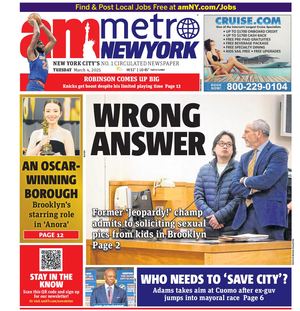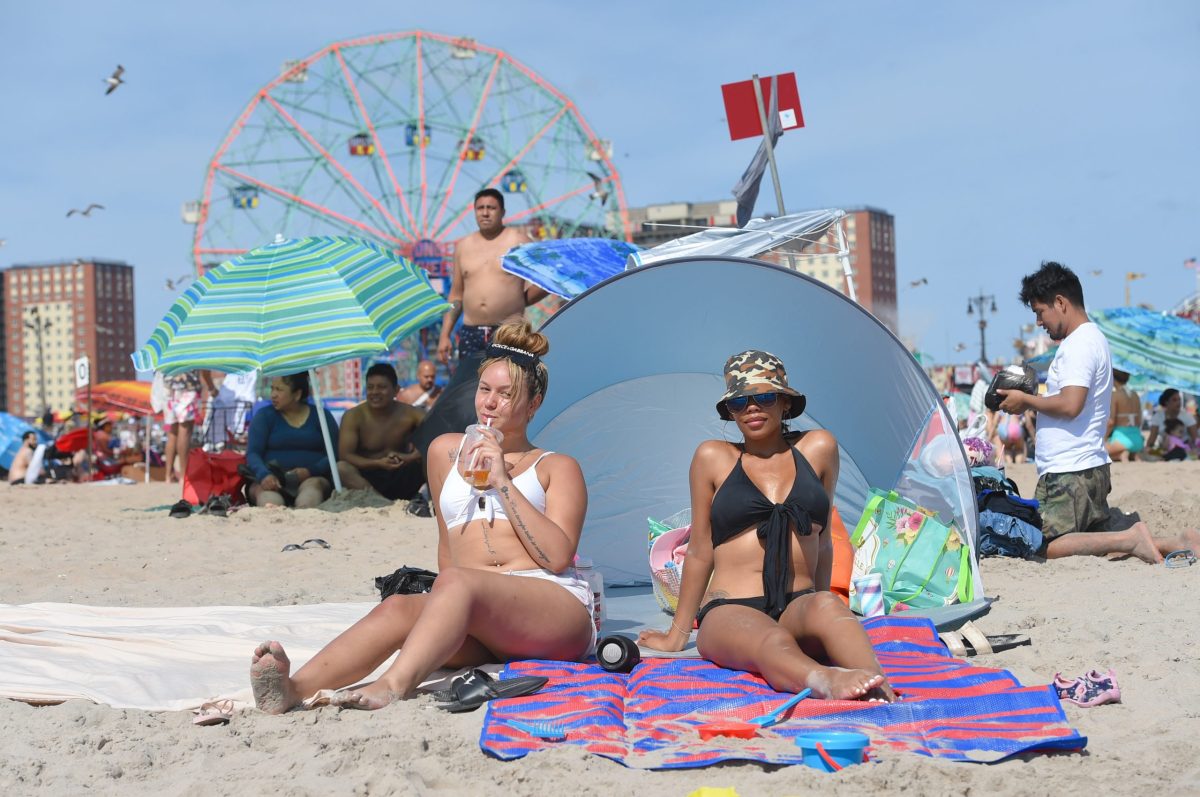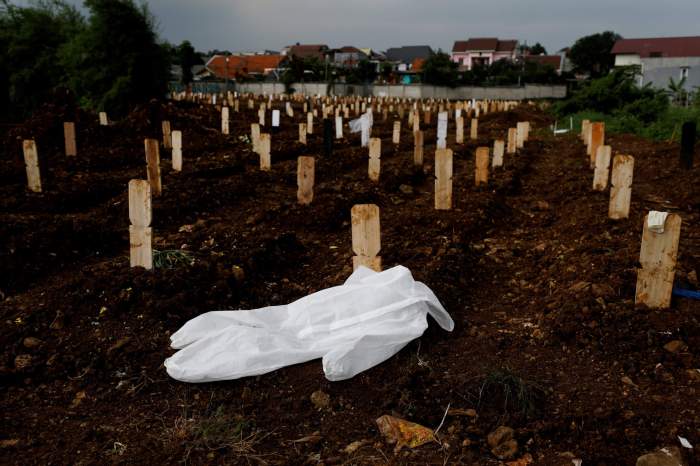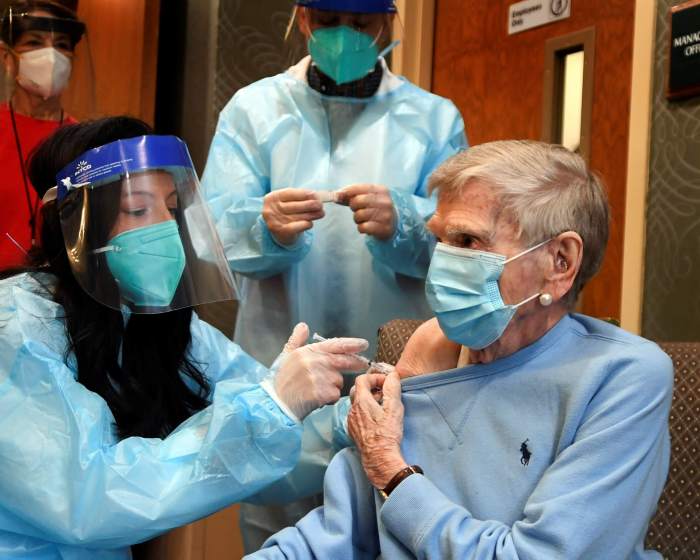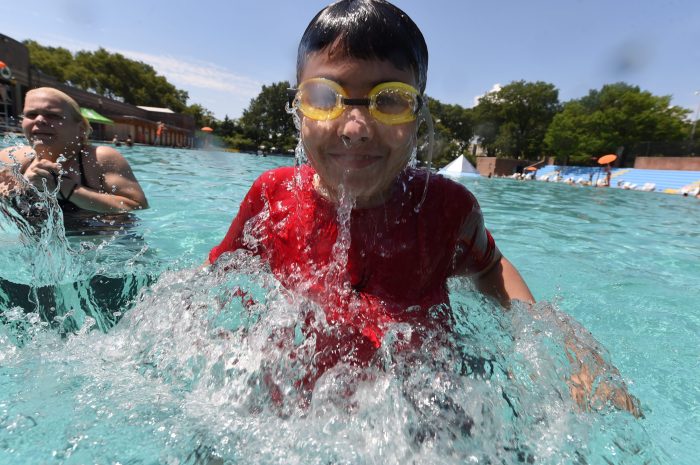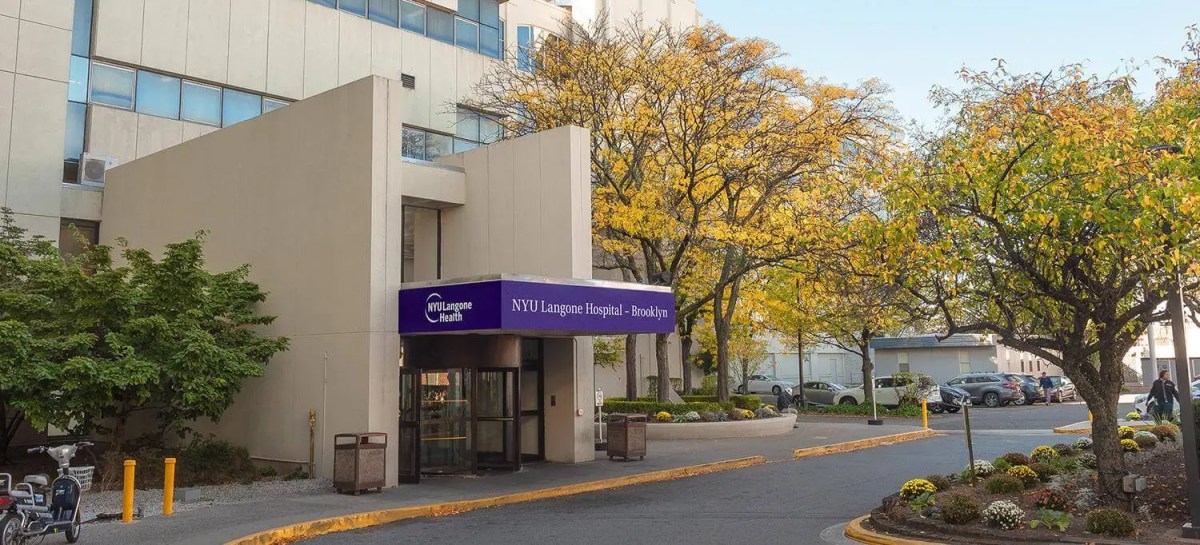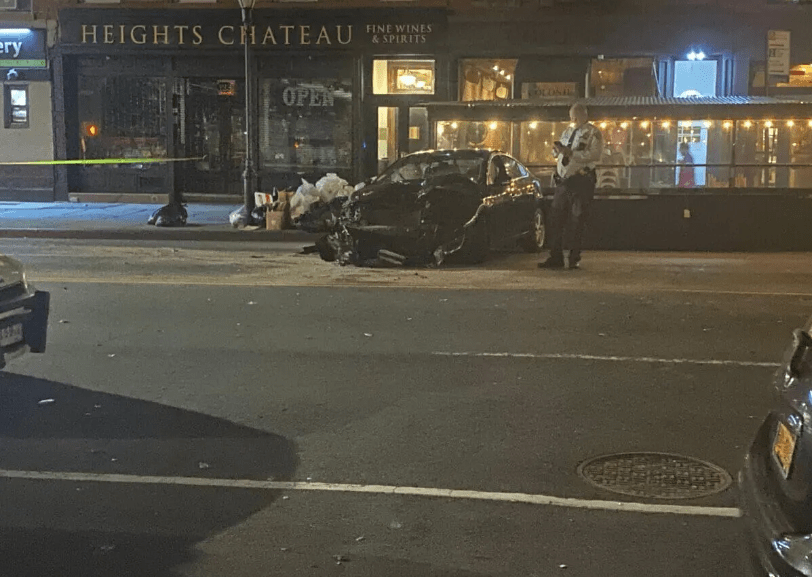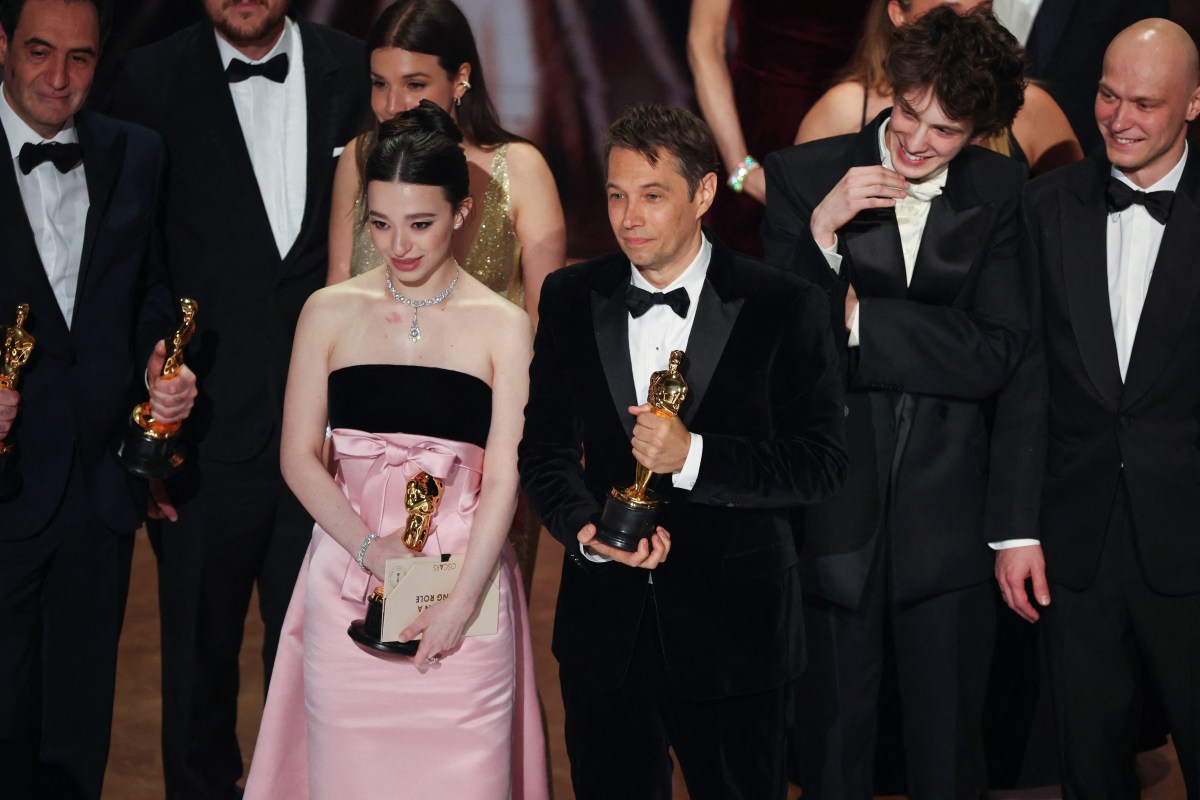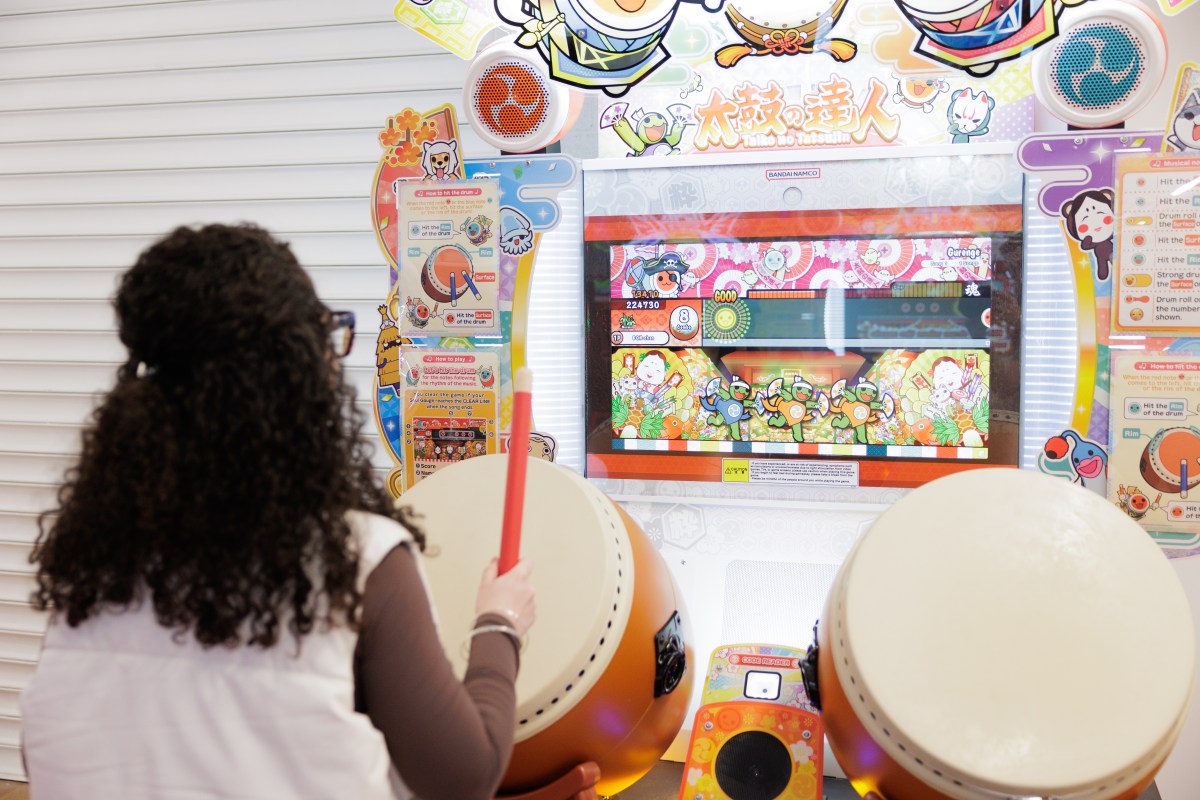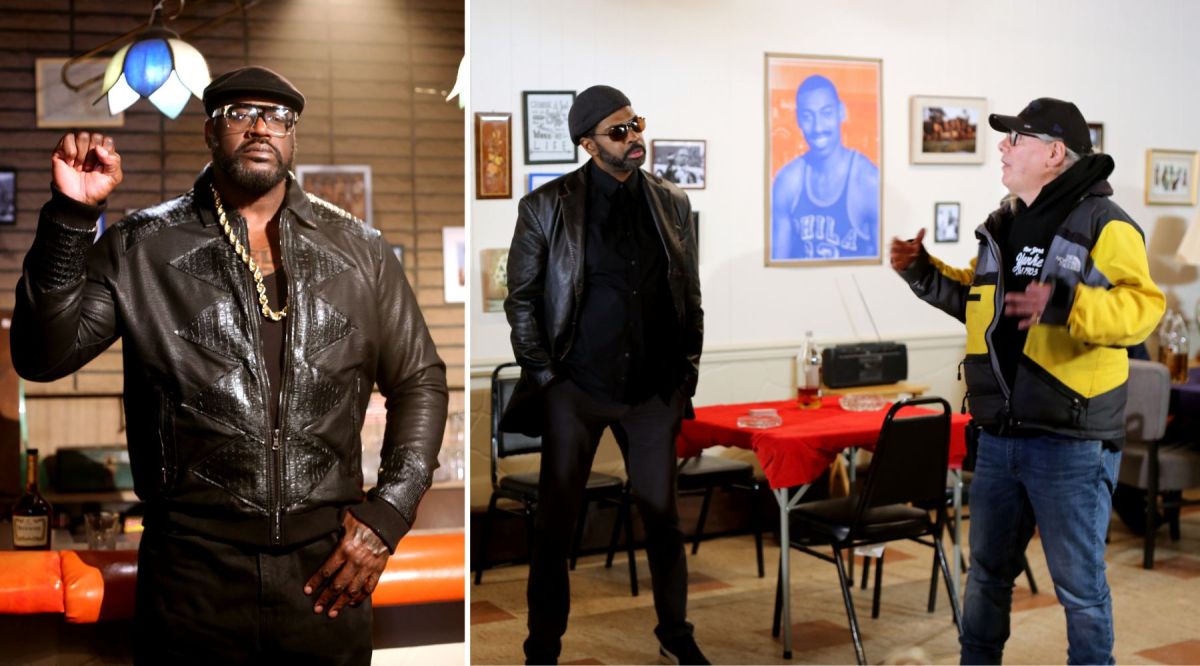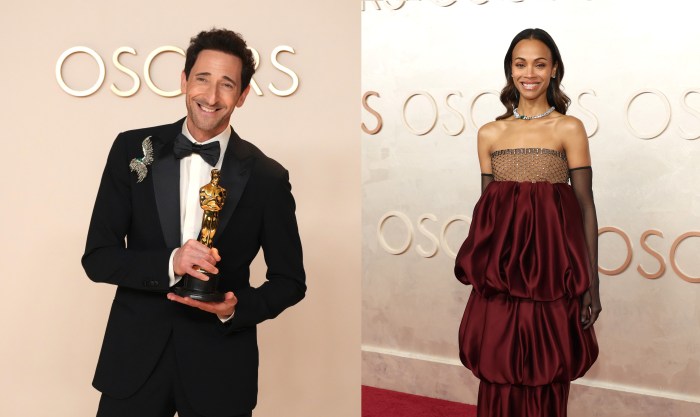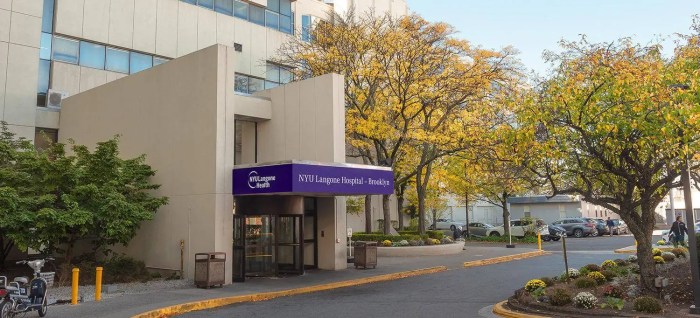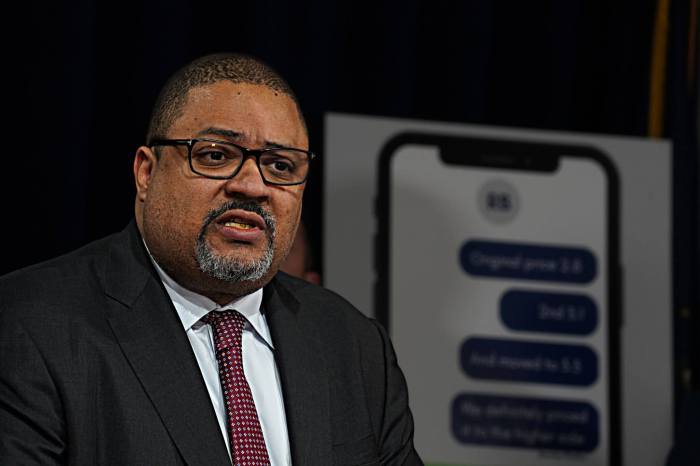On the bright side of COVID-19 updates, said Mayor Bill de Blasio in his morning briefing this Wednesday, all beaches and pools will be open this year marking a decidedly less restricted summer than last year’s initial crisis allowed for.
De Blasio said all eight New York City public beaches will be open on time starting Saturday, May 29, and all 48 outdoor public pools will be open after the last day of school Saturday, June 26 with social distancing, sanitation, and masks still in place.
“Last year we had to delay the openings,” said de Blasio. “This year we get to do what’s great for the families, kids of this city. Have them all open. It’s outdoors, it’s exactly where we want people to be.”
On the downside, the lingering effects of “long COVID” and controversy over vaccination passports shows that the recovery from the health crisis is far from over.
“A number of people had COVID and the disease in the first instance passed. A lot of New Yorkers are still feeling the effects of COVID, months and months later,” the mayor said. “And we have to help them. We’ve got to make sure folks still experiencing negative symptoms, having really tough aftereffects of COVID, that we’re there for them.”
In response, said de Blasio, the city has created COVID Centers of Excellence in the Bronx and Queens that are focused on holistic care for people suffering with “long COVID.” A Brooklyn center should be opening in Bushwick in July, said the Mayor.
Dr. Amanda K. Johnson, who is director of the Office of Ambulatory Care and Population Health NYC Health + Hospitals and leads in the Test & Trace Corps, will be heading the new initiative to study and research long COVID.
Long COVID is a collection of symptoms that develop either during or following a period of confirmed or suspected case of COVID-19, and continue for either weeks or months afterward, said Johnson. It’s estimated that at least 10% of individuals who have been infected with COVID-19 go on to develop long COVID, said Johnson.
“Not a week goes by that my patients are not touched and impacted by the long-lasting effects of COVID-19. I have individuals who are months out from their acute infection of COVID-19, who are still stricken with shortness of breath, chest discomfort, lightheadedness, cough, anxiety, depression, confusion that they didn’t have before their infection,” said Johnson.
The program links former test and trace patients that are still experiencing symptoms of COVID to resources for physical and mental health, financial support, and community support in the post-COVID realm.
As far as vaccine passports go, de Blasio agreed that it’s a divisive issue. “Put aside the politicization for a moment, I think there is an understandable tension here between sort of a greater public good, in terms of health and well-being, but also individual rights. This is kind of a historic American challenge,” said de Blasio.
He said that he generally thinks passports are a good idea, and handy for validation in certain situations like air travel, but don’t need to be mandated.
De Blasio said he’s at least happy to see the city steadily progressing forwards with vaccination efforts in full swing. He accredited the progress to grassroots organizations and announced there will be more pop-up sites in public housing, senior centers, community centers, houses of worship, and known community organizations.
“Supply is finally starting to come in, so the numbers are really moving now,” said de Blasio about the just over 4 million doses administered so far.
